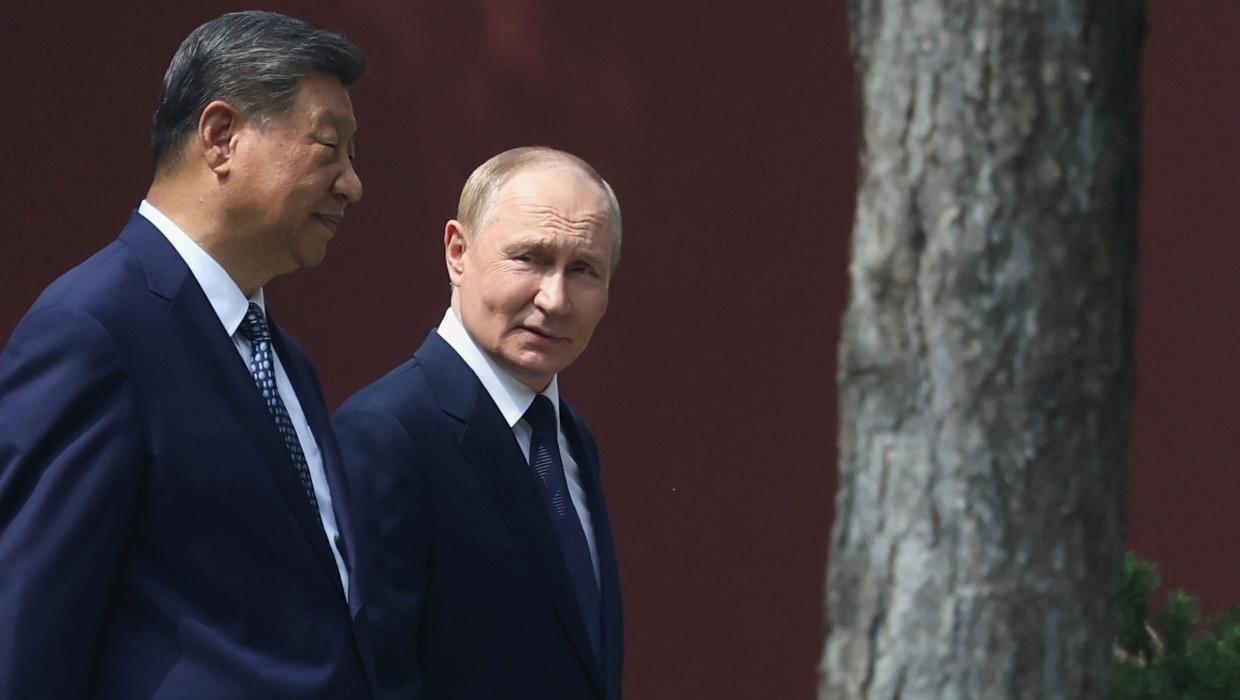Science
Putin’s Ambitious Quest for Immortality Unveiled in Hot Mic Incident

In a recent incident involving an open microphone, Russian President Vladimir Putin expressed his aspirations for extending human life, sparking discussions about longevity research and its implications. The remarks, which were captured during a meeting, highlighted Putin’s interest in the potential for significant advancements in lifespan extension through scientific innovation.
The conversation revealed a desire among world leaders, particularly those with substantial resources, to explore the frontiers of medical science. Putin’s comments underscore a growing trend among influential figures who aim to harness the expertise of their nations’ top scientists to tackle the challenges of aging and healthspan enhancement.
Global Leaders and Longevity Research
Access to vast financial resources allows leaders like Putin to pursue ambitious scientific endeavors. The Russian Federation, alongside countries such as the United States and China, invests heavily in biotechnology, genetics, and regenerative medicine. These areas hold promise for breakthroughs that could potentially extend human life beyond current limits.
In recent years, significant advancements have been made in understanding the biological processes of aging. Researchers have identified various genetic factors and cellular mechanisms that contribute to longevity. Some studies suggest that interventions such as caloric restriction, genetic modifications, and advanced pharmaceuticals could play a role in extending both lifespan and healthspan—the period of life spent in good health.
The global race for longevity is not merely a scientific pursuit but also a matter of national prestige and geopolitical strategy. As nations strive to secure their place at the forefront of scientific innovation, the implications of these efforts extend beyond individual health. The prospect of enhanced longevity could reshape societal structures, labor markets, and healthcare systems.
The Science Behind Lifespan Extension
Research in longevity has gained momentum, with numerous studies focusing on the potential for extending human life. For instance, the Calico Life Sciences initiative, backed by Alphabet Inc., aims to tackle aging-related diseases through cutting-edge research. Similarly, initiatives in Russia have focused on developing therapies that could delay the aging process.
According to a report by the World Health Organization, the global population aged 60 and over is expected to reach 2.1 billion by 2050. This demographic shift underscores the urgency for effective solutions to age-related health issues. Nations investing in longevity research may gain significant advantages in managing the challenges posed by an aging population.
Putin’s aspirations, while ambitious, reflect a broader trend amongst global leaders who are increasingly focusing on health and longevity. The desire for extended life raises ethical questions about access to these advancements and the potential disparities that could arise between countries and socioeconomic groups.
As research continues to evolve, the dialogue surrounding longevity will likely grow more complex. The intersection of politics, science, and ethics will shape how societies approach the possibilities of extending human life. The ambitions of leaders like Putin may just be the beginning of a new era in healthcare and longevity science, driven by the quest for immortality.
-

 World2 weeks ago
World2 weeks agoPrivate Funeral Held for Dean Field and His Three Children
-

 Top Stories3 weeks ago
Top Stories3 weeks agoFuneral Planned for Field Siblings After Tragic House Fire
-

 Sports3 months ago
Sports3 months agoNetball New Zealand Stands Down Dame Noeline Taurua for Series
-

 Entertainment3 months ago
Entertainment3 months agoTributes Pour In for Lachlan Rofe, Reality Star, Dead at 47
-

 Entertainment2 months ago
Entertainment2 months agoNew ‘Maverick’ Chaser Joins Beat the Chasers Season Finale
-

 Sports3 months ago
Sports3 months agoSilver Ferns Legend Laura Langman Criticizes Team’s Attitude
-

 Sports1 month ago
Sports1 month agoEli Katoa Rushed to Hospital After Sideline Incident During Match
-

 World3 weeks ago
World3 weeks agoInvestigation Underway in Tragic Sanson House Fire Involving Family
-

 Politics2 months ago
Politics2 months agoNetball NZ Calls for Respect Amid Dame Taurua’s Standoff
-

 Top Stories3 weeks ago
Top Stories3 weeks agoShock and Grief Follow Tragic Family Deaths in New Zealand
-

 Entertainment4 months ago
Entertainment4 months agoKhloe Kardashian Embraces Innovative Stem Cell Therapy in Mexico
-

 World4 months ago
World4 months agoPolice Arrest Multiple Individuals During Funeral for Zain Taikato-Fox




















